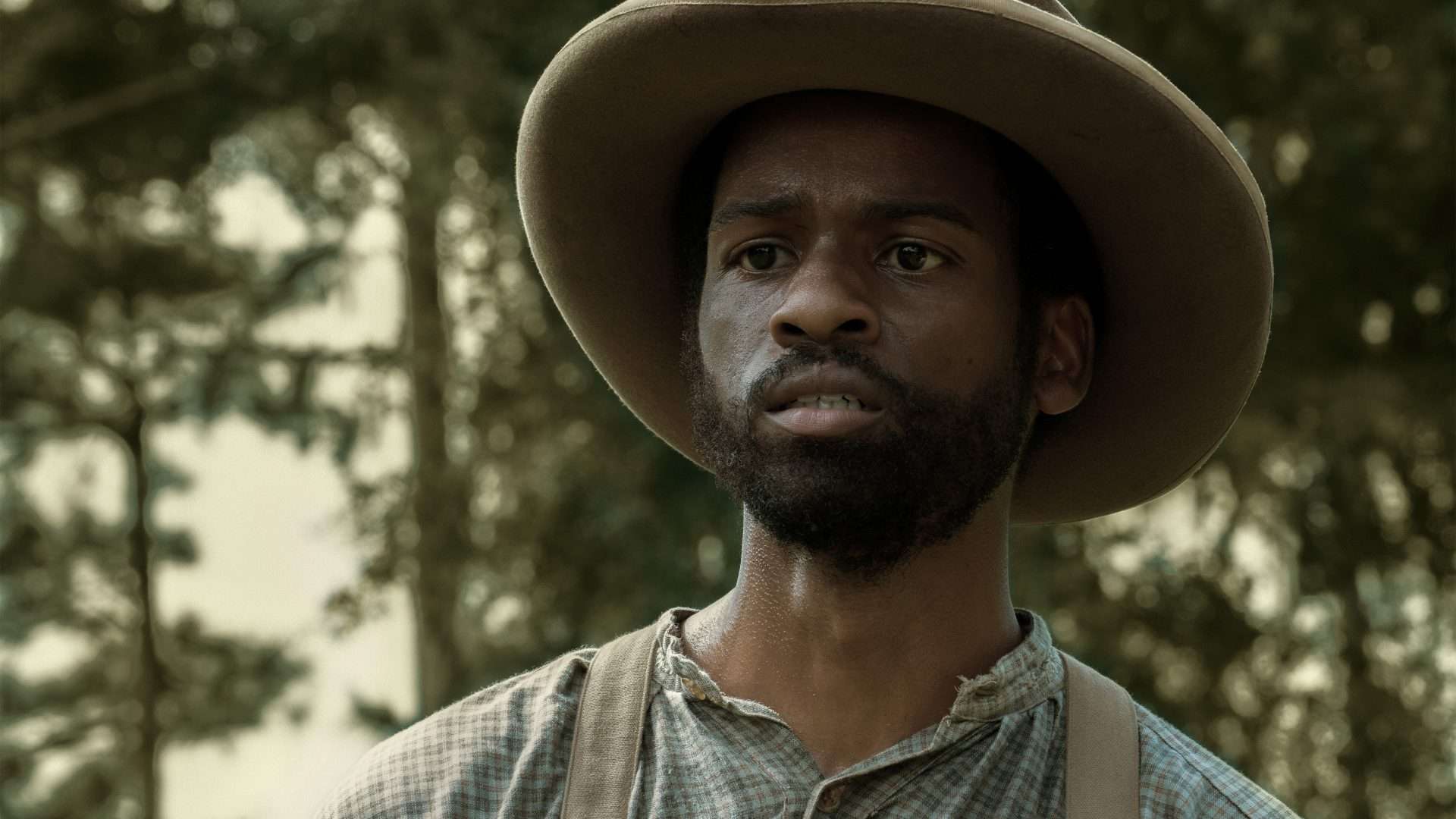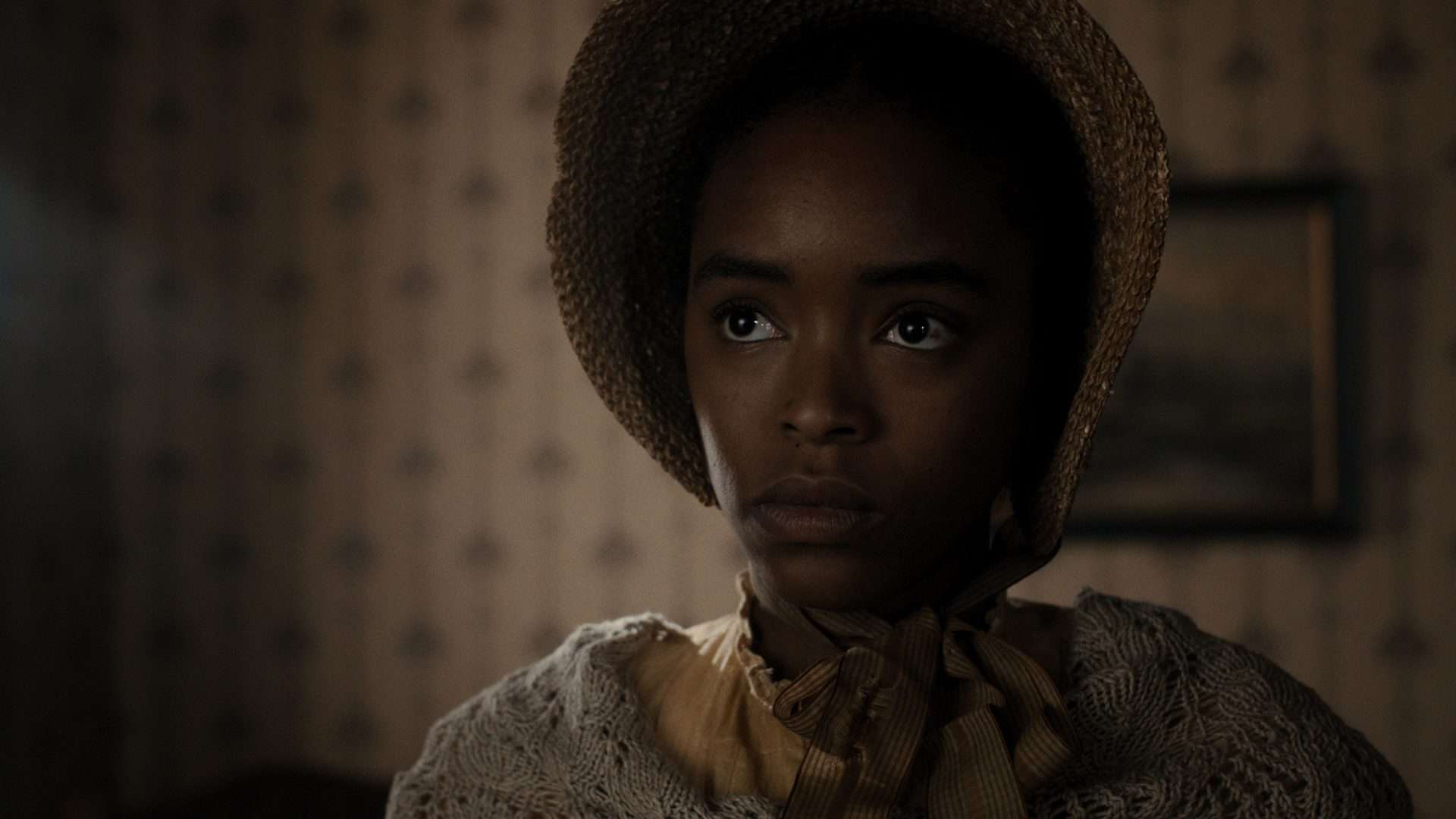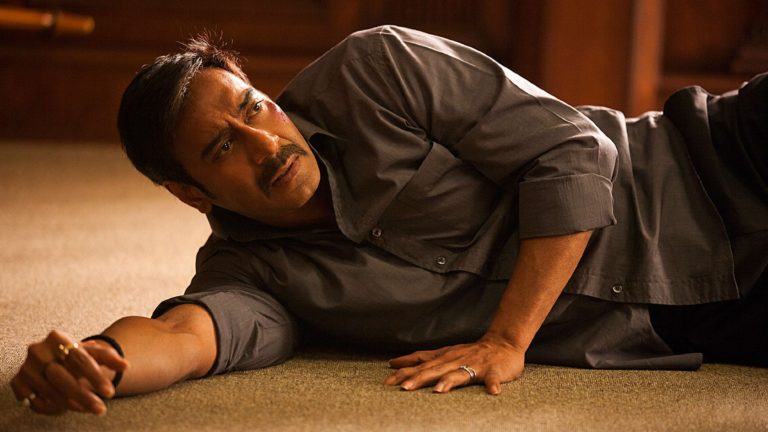“Manhunt” becomes not just about the search for John Wilkes Booth but also about the burgeoning development of the United States with a prevalent Union ideology under threat after the death of Lincoln. While Lincoln isn’t in “Manhunt” episode 5, his policies and their after-effects, especially the repeal of reconstruction, are keenly felt. It doesn’t hamper the pace of the narrative. Still, one can argue that the show is trying very hard to correlate recent American history with the inception of the United States. Yes, humanity hasn’t changed much in 200 years, but did it need to be this unsubtle?
Manhunt Episode 5 “A Man of Destiny” Recap:
The episode opens with Herold again making a mistake, even as he is trying hard and effectively in the thankless job of escorting the self-proclaimed hero of the Confederates. But as it stands, a mishap of direction due to the foggy night ensured that Herold had just rowed the boat and circled back to Maryland. While the injured Booth proselytizes on the demerits of fighting at the front lines (“Low Wages, Terrible Food”) and the uniforms, he ironically wonders, in his delusion, what high-ranking position he would be given. It’s the inherent theatricality of the man that contributes to an already unhealthy strain of narcissism.
But now Booth and Herold would have to disguise themselves by wearing the uniforms of the dead soldiers lying at the banks and row back again to Virginia. We are also introduced to a Union soldier named John Corbett. Ten years before Lincoln’s assassination, Corbett had been a failed hat seller and a drunkard. He had been saved by being rechristened by a preacher as Boston Corbett. His belief in the Union’s values presumably translates to the work of God or a sign.
Why does President Johnson roll back on reconstruction?
As Manhunt progressed, we realized that President Johnson is less a man of unwavering principles and more a centrist who is comfortable with where the wind is blowing. He follows the ideals of the Union, but he is also sympathetic to the loss of the “assets” of the Southern lords. However, Johnson remarks that the lands that had been taken from these lords as assets were technically grandfathered to them rather than having earned their station by pulling up their bootstraps as Johnson had. However, this smugness doesn’t sit well with the lords.
It is also coupled with some of the unsubtle but also necessary messaging (a black man winning the second term of the presidency is the worst-case scenario for these men) as well as the protestations regarding the legitimacy of Johsnon’s presidency. Thus, they submitted a petition for the land grants, with a veiled threat that they could produce more signatures to solve Johnson’s “War Secretary problem.”. Perhaps it wasn’t surprising that Johnson ultimately folds and starts rolling back on reconstruction. This, however, comes as an unfortunate surprise for Stanton, who is interrupted in the middle of an intensive search for Booth and supplies the Union Soldiers with particulars about Booth and Herold to aid in the search.
For Stanton and the Union as a whole, Johnson’s decision to reverse the Reconstruction comes as a betrayal, especially considering the promise that had been made three months ago by Gen. William T. Sherman and officially sanctioned to release the land grants to the African Americans as the first step for the marginalized to gain their foothold as individuals, one having the freedom to earn their wages and even have a name of their own. It would be a betrayal of the political risks that Sherman had to undertake to ensure miles of coastal land would be allotted as land deeds to freed African Americans.

The macro- and micro-aspects of the reconstruction are explored from two perspectives. The macro is the confrontation between Stanton and Johnson, where Stanton, by actually making this decision, is almost free to express his unabashed opinion of the negro not owning any land. Stanton tries and even begs for Johnson’s reconsideration, but Johnson refuses to budge. It’s almost as if folding to the threats of the overlords makes political figures change their spots quite frequently.
But this episode also explores Stanton’s deteriorating health, an unsubtle representation of the country at large, which is dealing with the overwhelming loss of Lincoln. Stanton seriously considers resigning, accepting the threat of Johnson, and letting another war secretary take on the reigns of leading the country. However, Eckert dissuades him from making this decision, reminding him that his decision would not solve the underlying problem. More importantly, Stanton wouldn’t be able to fulfill Abe’s promise. So maybe the rest of the 40,000 land grants that Stanton promised Sherman would be allotted in the winter wouldn’t be fulfilled. But like Eckert reminds him, “Choose your battles.”.
The micro-perspective is an unfortunate one for Mary Simms. What had been a heroic act of rebellion for her in the previous episode—walking out of Dr. Mudd’s and choosing to teach the kids at her community on the land granted to her and her brother—becomes a returning nightmare when the repealing of reconstruction occurs. To the dismay of the Simms, armed Union officers arrive at their land with a signboard announcing the lands to be revoked. It forces Mary to return to Mudd, forcing her to re-calibrate the torture and humiliation she had tried hard to escape from.
What is John Wilkes Booth’s plan to travel to Richmond?
Meanwhile, Booth and Herold had finally managed to row the boat to the banks of Virginia. They walk to Port Royal, where the ferry traverses Confederate soldiers to the Union Territory, where they would sign the allegiance. One of these groups of wounded soldiers, with battered limbs and lost appendages, had crossed paths with Stanton and his crew while they had been searching for Booth. Booth and Herold also come across these soldiers while waiting for the ferry.
One of the soldiers is suspicious of Booth, having noticed the initials of JWB tattooed on his limb. Booth, already realizing his leg is slowly turning gangrenous, is still under the deluded impression of being a hero. His subterfuge of being John William Boyd, with Herold being his cousin and having served within the Confederate Army in Texas under Stonewall Jackson, is not convincing at all. But even after being caught in the act, it doesn’t dissuade Booth. He proclaims himself a hero, but to his surprise, he receives condemnation from the soldiers on his side. For them, it is a matter of honor to be earned on a battlefield, not by murdering someone in the back, even if it is under the garb of a political act or “Sic Semper Tyrannis.”
But most importantly, what Booth fails to understand and thus lashes out angrily at one of the soldiers (who we later learn is named Willie Jett) is that war is hell. For these soldiers, signing allegiance and accepting this new world order is a reprieve from that hell. It’s a chance to return home, away from the frontlines, away from the muskets and the cannons. For them, ideological acts leading to underhanded means of violence don’t count as honorable.
For Jett, the nonchalance is more of a byproduct of a settled future, of marrying rich, and thus shielded from the political upheaval caused by the end of the war and the murder of the president. Thus, he manages to point to a safe space to spend the night before traversing the 50-mile hike to Richmond, Garrett’s tobacco farm. As we see when Herold and Booth resume their trek, Booth’s leg starts hurting so badly that he screams, unable to trek anymore. Herold barely manages to take him somewhere to recuperate.
How does Stanton free Mary?
Back at the War Office, both Eddie and Eckert inform Stanton that they have realized something. The Secret Line began in Bryanttown, and Dr. Mudd, whom they had already questioned, lived within a stone’s throw from Bryanttown. If Mudd is CSS, it would explain how Booth would have been able to obtain medical attention before beginning his trek.

Thus, investigators from the War Office, this time led by Stanton, return to Mudd’s house with a search warrant. Mudd doesn’t alter his statement that he was unfamiliar with the patient’s identity and had only aided because of his faithfulness to the Hippocratic Oath. In the middle of Mudd’s statement, Stanton chances upon Mary, hiding behind the kitchen door, who tells him to check the rooms upstairs.
Taking her advice, Stanton searches while Mudd orders Mary to offer the officers water. As Stanton checks the bedroom on the upper floor, he comes across the smoking gun—the boot with JWB monogrammed on it. He walks downstairs like a cat, having caught a canary, and shuts Mudd’s objections down, reminding him and us that Stanton’s father had been a family physician, and like Mudd, he too had been a liar.
Unlike Mudd’s explanation, Stanton believes that Mudd knew Booth long before their fateful meeting at Mudd’s porch. Emboldened by Stanton’s presence, Mary finally acquiesces and corroborates, revealing that he had been a silent supporter of the events of January 14th and an intimate supporter of Booth and Surratt’s movement. As the loudly protesting Mudd is arrested for conspiracy, Stanton thanks Mary.
When asked by Stanton whether she has any family to return to, Mary answers in the negative. Stanton offers her temporary shelter at Arlington, which she happily accepts on the condition that she could bring her brother. Stanton also remembers the Confederate soldiers he had met who had been walking towards Port Royal and realizes Booth’s injury gave him an opportunity to camouflage amongst these soldiers. Finding a clue that pushes him ever closer to his quarry, Stanton races along, even as his health declines.
Manhunt Episode 5 “A Man of Destiny” Ending Explained:
Where is Booth hiding?
Stanton and his employees travel to Port Royal, where they question the ferryman. The ferryman, in response, asks whether black folk would be awarded the reward money, to which they assure him that the reward would be awarded to anyone armed with information. The ferryman informs them that the fugitives the war department is searching for have passed through, and he believes Willie Jett has furnished them with directions.
Stanton also learns that Booth’s subterfuge as a soldier didn’t end well because Booth apparently “wanted attention.”. Meanwhile, we see Booth has been taken to what is later revealed as Garrett’s farm. There, a clearly sick Booth is seen in a hot tub, being treated by a buxom woman whom Booth, in his delirium, calls an angel. The angel’s further validation of Booth as a symbol forces Booth to ask the pertinent question: Where are his ribbons?
On the other hand, Stanton finally locates Willie Jet, and after threatening him with an arrest for aiding an assassin, Jett reveals that Booth might be at Garrett’s farm, the first farm before the town center. Stanton, though, never gets the chance to celebrate this victory, as he is doubled down by a crippling attack of asthma and falls to the ground. As Eckert and Eddie proclaim that they won’t leave Stanton, Boston Corbett takes this as a sign of God and orders the Union Soldiers to charge toward the farm and Booth. As we are aware, due to history, Booth’s final stop would be Garret’s farm, so we are clearly near the endpoint.




![Family Drama [2021] SonyLIV Review: An Absolute Bonkers Roller-Coaster Ride of a Dark Comedy](https://79468c92.delivery.rocketcdn.me/wp-content/uploads/2021/10/Family-Drama-Telugu-2021-768x327.jpg)

![Blindspotting [2018] Review: Change The Way You See](https://79468c92.delivery.rocketcdn.me/wp-content/uploads/2019/01/blindspotting-screenshot-2-768x414.jpg)

